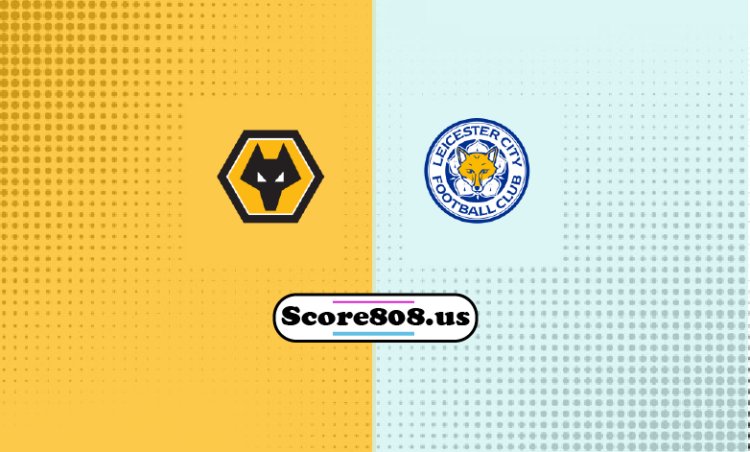Wolves vs Leicester
Wolves vs Leicester livestream

As the season approaches its climactic conclusion, Barcelona and Real Madrid stand on the brink of a pivotal confrontation—one that will not only determine silverware but also shape the future trajectories of both clubs. The first of these decisive encounters comes in the form of the Copa del Rey final in Seville, followed shortly by another high-stakes El Clásico at Montjuic on May 11. These matches represent more than just battles for trophies; they are symbolic of identity, resurgence, and legacy.
For Barcelona, this moment presents an opportunity to solidify their remarkable resurgence, silencing doubters who prematurely declared their decline. It is a chance to prove that the club’s struggles in recent years were merely a transitional phase rather than a permanent fall from grace. On the other hand, Real Madrid face what could be the closing chapter of an era—a final showdown before potential reinvention. The outcomes of these clashes will reverberate beyond the immediate results, influencing narratives, morale, and the direction of both clubs in the seasons to come.
In the past, Barcelona’s rivalry with Real Madrid was often tinged with an unspoken envy—a desire to emulate their rivals’ relentless winning mentality, their cold efficiency in securing trophies, and their imperviousness to failure. For years, Barcelona chased that same aura of invincibility, only to find themselves lost in cycles of instability, financial turmoil, and managerial turnover. Yet this season, under the guidance of Hansi Flick, something fundamental has shifted. The club has rediscovered not just its competitive edge but also its soul—the understanding that football is as much about the journey as it is about the destination.
Flick’s influence has been transformative. He has instilled a sense of emotional clarity within the squad, fostering an environment where ambition and patience coexist. His management style balances the urgency to win with the necessity of nurturing young, hungry talents. This equilibrium was evident in their recent match against Mallorca, where despite rotating seven players and fielding a weakened lineup, Barcelona produced their most statistically dominant performance in years—racking up an astonishing 40 shots on goal. Though only one found the net, the match was a testament to their unwavering philosophy. The team’s cohesion, even with key players like Frenkie de Jong, Jules Koundé, Pau Cubarsí, and Raphinha rested, demonstrated a unified vision. Flick’s tactical blueprint extends beyond formations; it is rooted in mentality, resilience, and collective belief.
What truly distinguishes this Barcelona side is not merely their tactical discipline but their emotional maturity. Flick has masterfully managed egos and expectations, turning potential conflicts into opportunities for growth. When Ferran Torres, Héctor Fort, and Ansu Fati reacted poorly to being benched in a previous match against Celta Vigo, Flick’s response was not punitive but purposeful. He started all three in the subsequent game against Mallorca—not as a reward or a punishment, but as a statement. His message was clear: the team is a platform for response, not reaction. In that single gesture, he transformed frustration into motivation, reinforcing the idea that every player has a role to play in the collective mission.
As Barcelona head to Seville for the Copa del Rey final, they do so without excuses. With key players rested and an extra day of preparation compared to their rivals, the stage is set for them to assert their renewed identity. They understand the magnitude of the occasion, but more crucially, they have rediscovered something even more vital—the knowledge of who they are.
While Barcelona’s narrative is one of revival, Real Madrid’s story is more complex. This season could mark the end of an era—a final rodeo for a squad that has dominated both domestically and in Europe. The club stands at a crossroads, with aging stalwarts gradually making way for a new generation. The upcoming clashes against Barcelona will serve as a litmus test for whether this iteration of Madrid still possesses the same killer instinct that has defined them for over a decade.
The psychological stakes are immense. A victory would reinforce their enduring supremacy, while a defeat could accelerate the need for reinvention. Unlike Barcelona, who have embraced a clear project under Flick, Madrid’s future is less certain. The transition from veterans like Luka Modrić and Toni Kroos to younger stars such as Jude Bellingham and Eduardo Camavinga is still in progress. These matches will reveal whether the blend of experience and youth can withstand the pressure of a resurgent Barcelona.
Beyond tactics and personnel, these encounters represent a deeper ideological battle. Barcelona, under Flick, have re-embraced the idea that football should be played with joy, creativity, and a sense of purpose. Real Madrid, meanwhile, have long embodied a ruthless pragmatism—winning at all costs, often through sheer force of will. The contrast in styles and philosophies will make these matches not just a contest of skill, but of identity.
For Barcelona, victory would validate their rebuild and signal a return to the pinnacle of Spanish football. For Madrid, triumph would reaffirm their status as the standard-bearers of consistency. But regardless of the results, these clashes will leave an indelible mark on the season—and perhaps, on the future of both clubs.
As the football world turns its gaze toward Seville and then Montjuic, one thing is certain: this is more than just a rivalry. It is a defining moment, a test of legacy, and a story of two clubs at very different junctures in their histories. The outcomes will resonate far beyond the final whistles, shaping narratives, legacies, and the very soul of Spanish football.














